Garden Rescue & SOS
 Lee Burkhill: Award Winning Designer & BBC 1's Garden Rescue Presenters Official Blog
Lee Burkhill: Award Winning Designer & BBC 1's Garden Rescue Presenters Official Blog

There's really no need to take drastic action with most gardens when a Garden Rescue & SOS will help you achieve the balance between beauty and function in your garden. This article will detail a recent Garden rescue I undertook, this is where Garden Ninja revamps a gardens entire planting scheme without overhauling the hard landscaping.
Sometimes it's not necessarily the design of your garden that isn't working but its the plants within it. Whilst a solid balanced and functional design is a major part of a successful garden design; the plant's really give the garden its life and movement. Considered planting is the bedrock of any successful garden design. If you have a solid garden design but then choose to plant all sorts of random pick and mix plants here there and everywhere you can soon come unstuck. This is one of the main problems with gardeners in the UK. However, all is not lost! A revamped planting plan and Garden SOS can quickly turn your frustrating space into a beautiful functional garden space.
If you have a solid garden design but then choose to plant all sorts of random pick and mix plants here there and everywhere you can soon come unstuck. This is one of the main problems with gardeners that struggle with design in the UK. However, all is not lost! A revamped planting plan and Garden SOS can quickly turn your frustrating space into a beautiful functional garden space.

A client got in touch asking could I write a report on their garden with some recommendations as they liked the layout but were really struggling with the overgrown shrubs and planting. After years of trying different plants dotted one here, one there, they had come unstuck and needed Garden Ninjas design and horticultural experience to help fix the garden.
The two problems with this garden were:
The front and back garden were overgrown with competing shrubs. These were talking a lot of maintenance, trimming off bits here and there. It also meant that other plants where growing leggy trying to escape their shade making it look really messy.
The first part of the redesign was to remove some dwarf conifers that had taken over the garden. These shrubs were blocking the view from the house of the garden and drying up the beds as conifers are notorious at being very thirsty. You can see how there are far too many large shrubs for the size of the borders, opposite the conifers is a bed with Camelia japonica, Miscanthus zebrinus, Ilex aquifolium and a Pieris japonica, all in a 1m space!
There are a few rampant perennials such as Japanese Anemones (Anemone × hybrida) that have overtaken the spaces between the shrubs and some New Zealand Flax (Phormium tenax) which are simply not suitable for the planting scheme that the client wanted. To say it was a bun fight for space and resources was an understatement.


The use of Acers in a windy spot and Holly bushes, which had been badly clipped, made the front garden look barren and wind burnt. The use of grasses and Japanese Anemones in the back, see above, meant that borders were crushed by rampant flowers all competing for light and moisture.
When I tested the soil it was severely lacking in nutrient value and the crumb structure was very weak. Meaning that the soil had either been overworked, compacted over time or never improved by use of mulch or organic matter. The PH value was a nice 6.5-7 meaning that a vast number of plants could quite happily survive here. The mix of plants from different groups requiring different conditions was huge resulting in a really incohesive planting scheme.
Something had to be done to save this one!
The solution for this garden problem was two-fold.
The client also wanted a colour palette that featured dusky pinks and purples using white as an accent colour to make the planting scheme really pop out. I chose plants that were both low maintenance and added unity to the garden. Unity is where the plants work well together such as Hebe 'True Love' and Heuchera 'Plum Pudding'. Armeria pseudarmeria 'Ballerina Red' was used in the front garden alongside Heuchera 'Marmalade'. In the shady borders both Hosta 'Patriot', Liriope ‘Monroe White’, Astrantia major 'Alba' and Cimicifuga simplex 'White Pearl' are all either shade or damp loving. Perfect for that tricky, damp back border!
The front garden was south west facing so received quite a lot of sun during the day, it did have shade pockets next to the garden wall which never really saw much sun. These pockets were also quite wet due to a clay content in the soil. Choosy shady plants that don't mind some damp was key in this part. The other warmer sunnier spots could happily be home to some sun loving showy plants. The garden rescue plan was to remove a number of shrubs and grasses from this border and introduce the following plants.

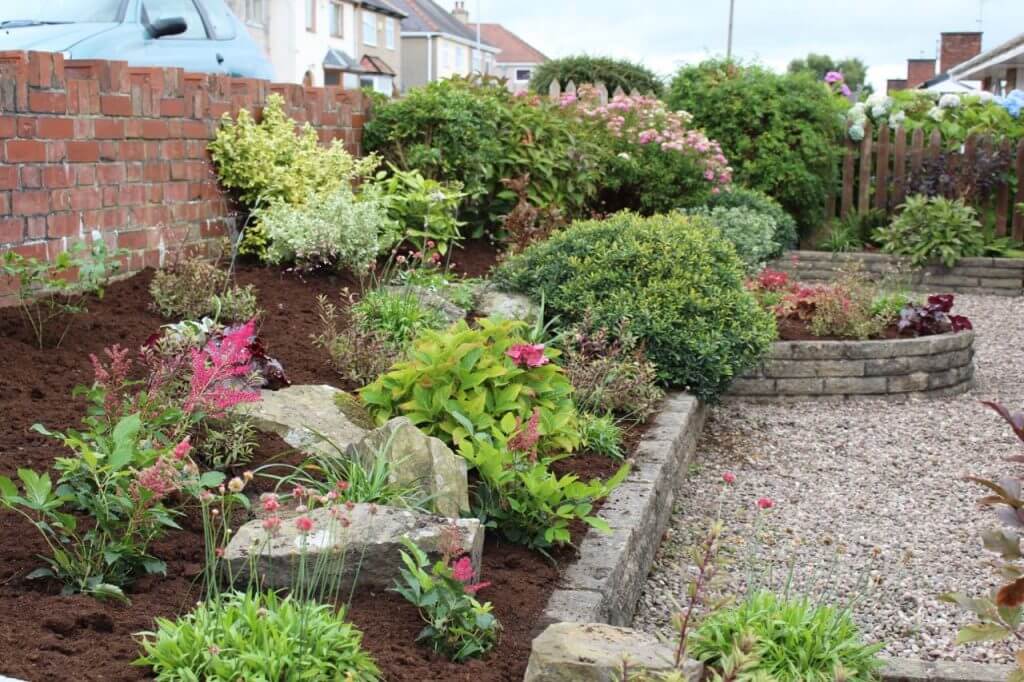


The back garden was North East facing so wasn't baked in full sun like the front garden. However, it didn't have any overhanging trees with the exception of one shady border. This meant that whilst not baked in the sun, it was quite bright and airy. For the main borders, the following planting was used.



The shady border which was also quite damp near the conifers was perfect for the following plants. Left to their own devices they will happily fill out this plot. Some minor maintenance each year will keep them quite happily under control. Using variegated plants in darker areas helps bring light and brighten the space.


So with some careful planting decisions, working with and not against the aspect and soil conditions the gardens were transformed. Careful preparation of the site was key to its success. Removing shrubs, conifers and their root structures to allow the new plants to root more easily. A thick 1-inch layer of fresh compost was used as a mulch to help suppress weeds, reduce evaporation and also to condition the soil.
Most of the plants chosen will only need minimal attention either with some very light pruning or removing of dead heads. They will quite happily tolerate a little bit of neglect and once they reach their full size the borders will be full of complimentary plants that support each other allowing each to shine at various times in the year.
Do you have a similar Garden SOS problem, need a report, planting plan or complete garden redesign? Why not get in touch with Garden Ninja to kick start your garden making it somewhere beautiful for you to enjoy.
You must be logged in to post a comment.

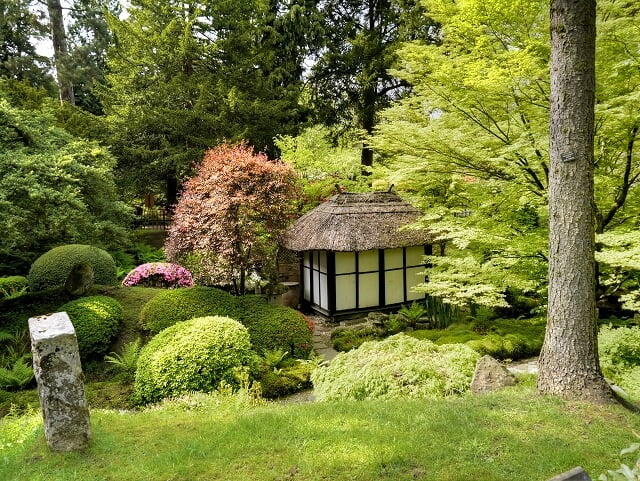
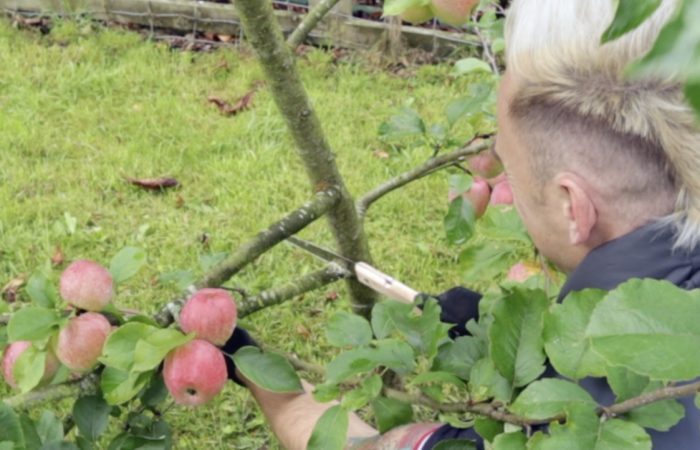
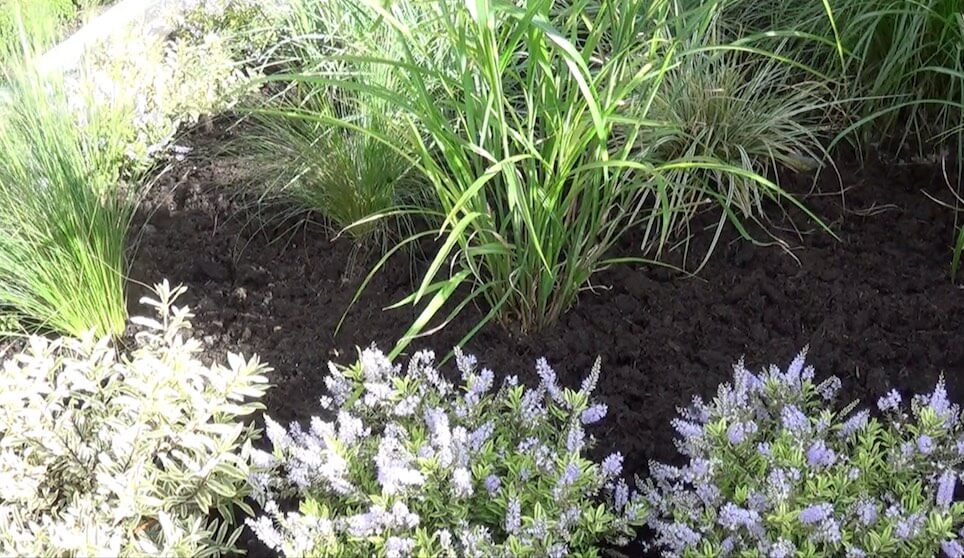
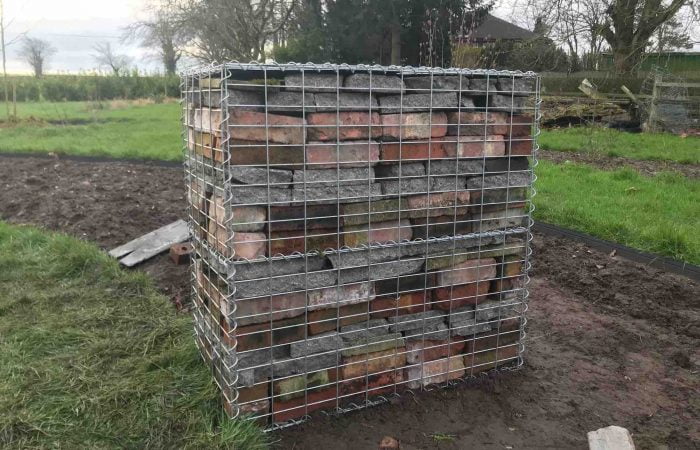
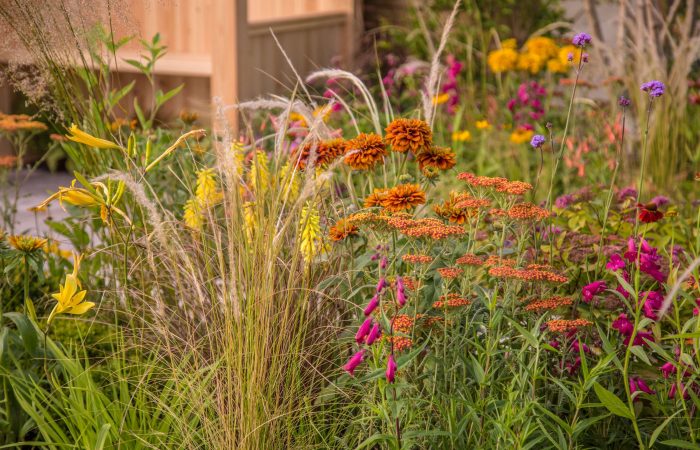
JOIN THE NINJAS

Be the first in line for new Guides, Discount codes and Offers
Hi my garden needs help I bed bound now, I can’t work in garden anymore. Need help. I’m 70 years old.